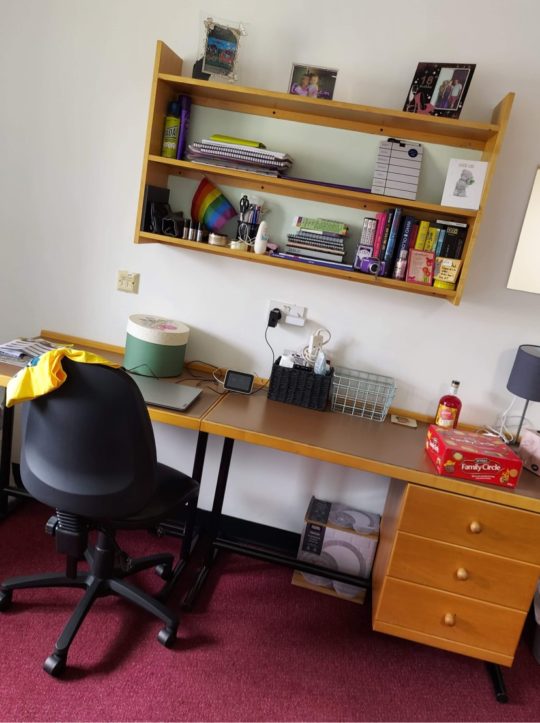
Lancaster Uni rents have increased by two-thirds in the past 11 years
What should have cost £105 per week in 2019 was actually being charged at £130
Despite protest from Students’ Union President, Oliver Robinson, Lancaster University is set to increase rent by one per cent for the next academic year. This rent increase would see the average weekly price of a basic en suite increase from £130.13 to £131.19, the £1.06 difference resulting in a yearly increase of £42.40.
This may sound insignificant to a lot of people, but how does this increase hold up in a wider context? In the academic year of 2009/2010 a standard room with a washbasin cost £72.80 per week, and a townhouse was £78.40 per week. In just 11 years this rate saw an increase of 50.7 per cent for a basic with washbasin and 67.9 per cent for a townhouse, placing both weekly at £109.76 and £131.60 in the 2020/21 academic year.

Based on the current inflation rates, the £72.80 standard with washbasin in 2009/10 should have cost £98.39 in 2019, according to the Bank of England. However, in 2020/21, the standard room was priced at £109.76, a price increase of £11.37 on top of the rate of inflation; this means that over the course of a 40 week rental contract, students are being charged £454.80 more than they would have been charged had the standard with washbasin been adjusted in line with inflation.
Using the same calculations, the townhouse rent was £78.40 in 2009/10 and in 2019 this should have increased to £105.96 in line with inflation; despite this, townhouses are being priced at £131.60 per week – students being charged £25.64 above the rate of inflation, per week. Across the 40 weeks of the rental contract, this amounts to £1,025.60 above the rate of inflation.
This increase from the university further begs the question of why are rates being increased by a further one per cent?
In a paper released to The Tab Lancaster, the university’s Finance and General Purposes Committee discussed the increases on 23rd October, with the report stating: “The University strives to provide student accommodation that is of the highest standard that at least meets student quality expectations, but provided at an affordable rent level.”

According to The Money Charity, in 2017/18 the average student maintenance loan that was granted was £5,489. If this is the average loan given to students now, then the accommodation charges being set by Lancaster University for a townhouse, if charged in three equal instalments, would leave students with just £5.62 per each of those 40 weeks of the rental contract – the townhouse rent per year costing £5,264. For a standard with washbasin, over 40 weeks, students are charged £4,390.40 – which leaves students with £27.46 per week.
Students, on average, spend £100 per month on essential groceries, meaning that students living in a standard room with a washbasin would have a disposable income of less than £3 per week to spend from their maintenance loan after paying for essential food shopping.
Bearing in mind that many students receive less than the average loan, this would make university rental charges almost unaffordable without additional support from students having part-time work or familial financial support.
Lancaster University Students’ Union President, Oliver Robinson, said: “You’d think that in a pandemic and economic meltdown, the University might demonstrate some sort of awareness, but apparently not.
“A big thing was made about the SU needing to move at the same pace as the University over rents in Term Three last year, but that doesn’t seem to have really had any bearing on their mind when it came to ploughing ahead with increases in rent.

“This stands in stark contrast to the SU where the FTOs made the decision not to increase rents for LUSU Living. We did so with eyes open and aware of the cost of doing so, but we believed that that money was better off in the pockets of our members.
“It’s all very well having a student voice in the room, but if you’re just going to ignore it as per, then it really doesn’t matter.”
When contacted for comment, a Lancaster University spokesperson told The Tab Lancaster: “Rental increases at Lancaster University have fallen for the past few years. This latest rise of one per cent for the next academic year is the lowest for some time.
“We very carefully consider the need to be sustainable and to meet inflationary cost pressures in order to ensure high quality accommodation. The University’s costs continue to rise so rental increases enable us to maintain a high quality campus for students. We also benchmark regularly with other local providers so we are not out of line with other student accommodation providers.”
Related stories recommended by these writers:
‘Good but inaccessible’: We investigated new Lancs Uni mental health services
‘Weed or mould?’: Lancaster students tell us their student housing horror stories
‘I’m really broke’: Lancs Uni’s agony aunt returns to fix your lives









































